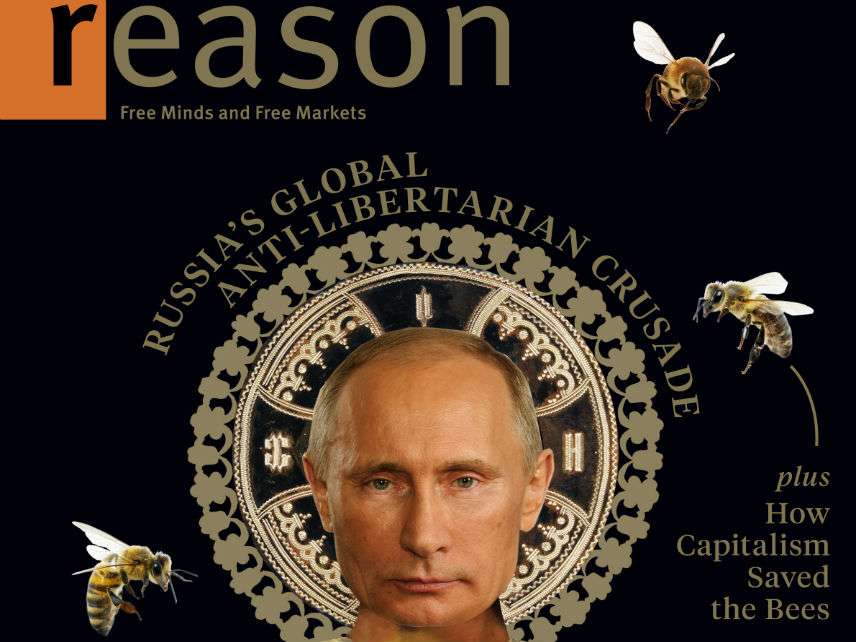Capitalism Averts Alleged Beepocalypse
Activists recycle specious apiary catastrophism.

Old environmental scares never die. Unlike old soldiers, they don't even fade away. Consequently, we still have activist groups constantly recycling chemophobia, non-renewable resource depletion, and overpopulation worries. The latest of these scares is what Time dubbed the the "beepocalypse" back in 2007.
Starting in 2006, many U.S. beekeepers noticed a high number of their hives were not surviving the winter. The afflicted hives appeared to have been abandoned. That winter beekeepers lost 32 percent of their colonies. The malady was eventually given a name: colony collapse disorder (CCD).
A search for villains began. Environmental activists soon latched onto a relatively new class of pesticides known as neonicotinoids, claiming they were the primary cause of CCD. But is that so? In January, the Environmental Protection Agency noted that "most approved uses do not pose significant risks to bee colonies," though "spray applications to a few crops, such as cucumbers, berries, and cotton, may pose risks to bees that come in direct contact with residue."
That didn't quiet the activists. Take Maine state Rep. Diane Russell, who's been emailing around a link to a MoveOn.org petition for a fellow Maine progressive Bree LaCasse. In their quest for votes, the email peddles beemaggeddon:
Bees are dying by the million, and a growing body of scientific evidence points to a dangerous breed of pesticides called neonics as the main culprit.
In response, a wave of local cities and towns are taking steps to ban bee-killing pesticides—and not a minute too soon. With Trump in the White House and science-denier Scott Pruitt running the EPA, the bees aren't getting any help from D.C.
That's why we must do everything in our power to protect the bees locally. My friend Bree LaCasse launched a petition to the U.S. Conference of Mayors to demonstrate the widespread support for local action to protect the bees.
We rely on bees, butterflies, and other pollinators for more than 70 percent of the world's food crops. That's what's at stake in this fight: without bees and other natural pollinators, we simply won't have enough food to feed the world.
If you subscribe to the print edition of Reason, you already know that Russell and LaCasse are recycling specious apiary catastrophism. The current issue features Property and Environment Research Center research fellow Shawn Regan's excellent feature, "How Capitalism Saved the Bees." One salient fact from the article: "In 2016, there were 2.78 million honeybee colonies in the United States—16 percent more than when the disorder hit in 2006. In fact, there are more honeybee colonies in the country today than in nearly 25 years."


Show Comments (134)